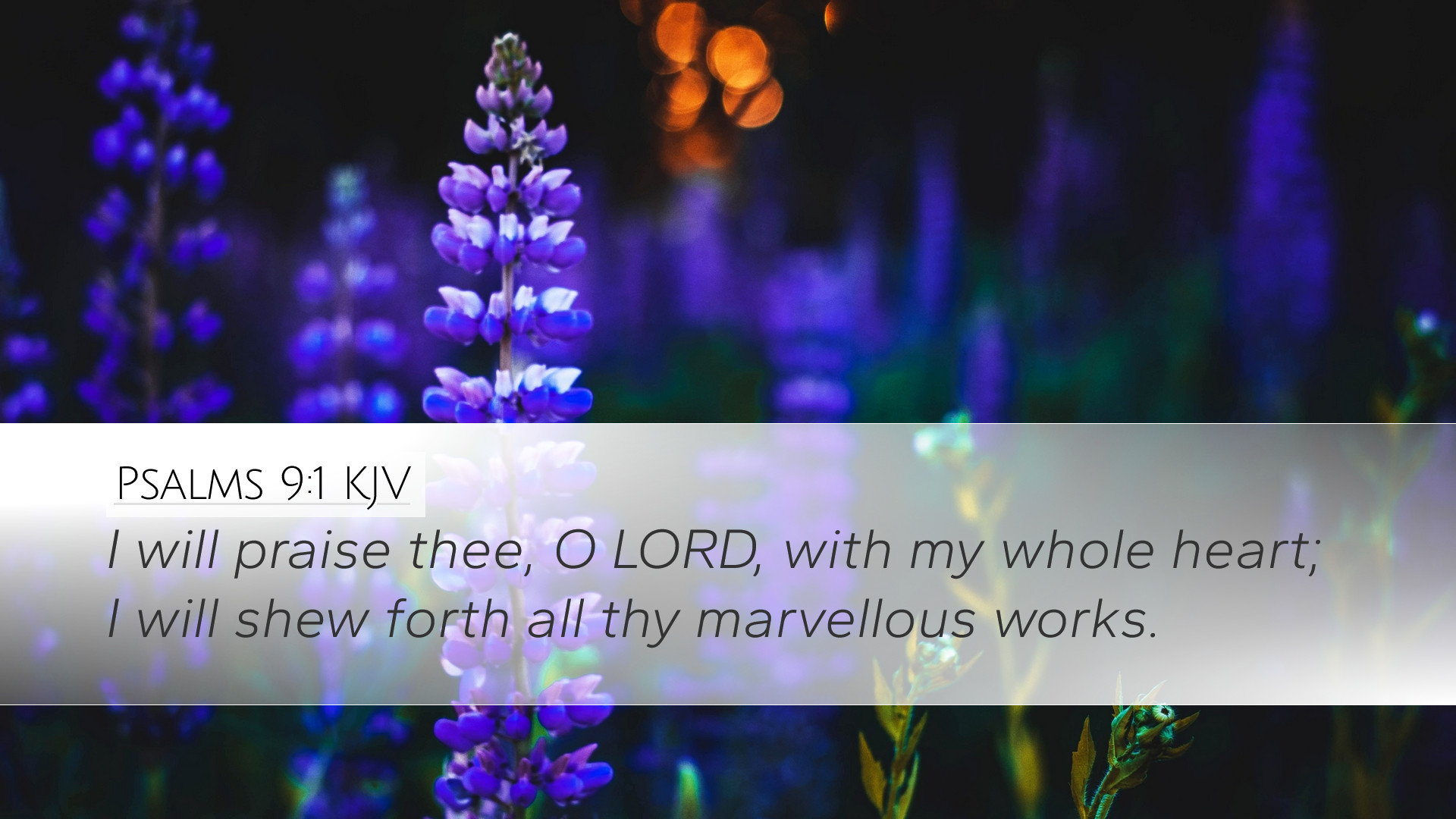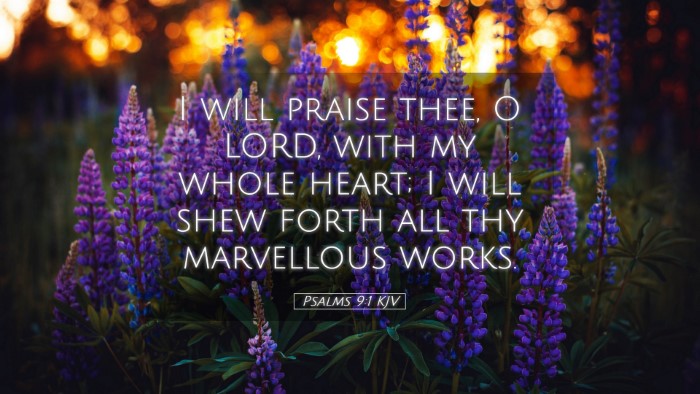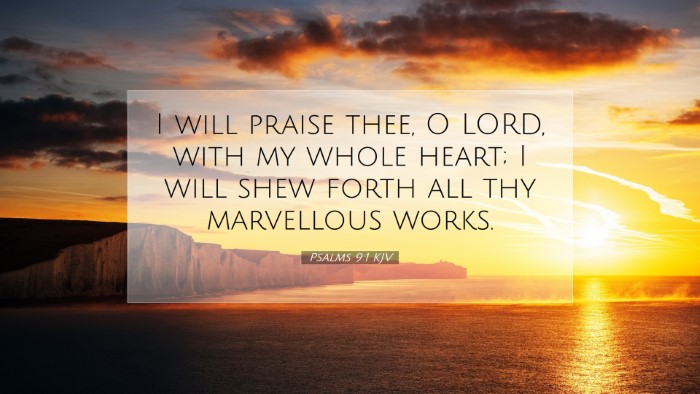Psalms 9:1 - A Commentary
Text: "I will give thanks to the Lord with my whole heart; I will recount all of your wonderful deeds." (ESV)
Introduction
The ninth Psalm stands as a profound expression of gratitude and a declaration of God’s justice and mercy. It sets an exemplary tone for worship and reflection, especially drawing attention to the posture of the psalmist's heart toward the Lord. In this commentary, we will explore the themes presented in Psalms 9:1 as articulated by prominent public domain theologians including Matthew Henry, Albert Barnes, and Adam Clarke.
Verse Structure and Meaning
In Psalms 9:1, the psalmist explicitly states his intent to give thanks to the Lord. This act of thanksgiving encompasses not merely a verbal expression but involves the totality of the psalmist's being, as indicated by “with my whole heart.” This phrase speaks to sincerity and depth of emotion in worship.
Component Analysis
- Giving Thanks:
Matthew Henry notes that gratitude is not only due to God for His benefits but is also a spiritual exercise that draws us nearer to Him. The act of thanks is both a recognition and a response to God’s providence.
- Whole Heart:
Albert Barnes emphasizes the importance of surrendering the entire heart in worship. A divided heart leads to half-hearted worship; thus, the psalmist's commitment to an undivided heart is crucial for genuine thanksgiving.
- Recounting Wonderful Deeds:
Adam Clarke describes the act of recounting as a reflective practice where one considers God’s past interventions and miraculous works. This encourages both remembrance and affirmation of faith. It serves as a basis for future trust in God’s continued faithfulness.
Theological Insights
This verse encapsulates a theology of worship that is based on experiential knowledge of God’s actions. It serves as a reminder that our understanding of who God is and what He has done forms the foundation of our thanksgiving.
Grace in Acknowledgment
Henry points out that acknowledging God’s deeds is part of the believer’s duty. This acknowledgment is linked with the grace received and a deep sense of personal accountability for recognizing how God’s grace has manifested in their life.
The Call to Testimony
Barnes articulates that recounting God’s deeds serves as a testimony that strengthens one's faith and encourages others in the community. It becomes a means of worship that is both personal and communal—leading to shared edification.
Connection with Deliverance
Clarke further emphasizes that the psalmist often reflects on past deliverances. This not only serves as personal history but embodies theological reflection regarding God’s salvific acts throughout history. The significance of remembering God’s deliverances through prayer and praise cannot be overstated.
Application for Life
Incorporating the principles derived from Psalms 9:1, pastoral and scholarly applications emerge. Consider how gratitude shapes the believer’s life, guiding interactions within the church and society.
1. A Model for Worship
The totality of heart engagement signifies that worship must be intentional and heartfelt. This models for congregations the importance of sincerity and devotion in their corporate gatherings.
2. Encouragement for Spiritual Growth
Psalms 9:1 encourages believers to cultivate a habit of recounting God’s goodness regularly. This serves to bolster faith, especially during trials, providing a well from which to draw strength.
3. Community Testimony
Sharing testimonies of God’s deeds fosters a supportive faith community. Pastors can encourage congregational reflection and sharing—reinforcing the community narrative that centers on God’s action in their midst.
Conclusion
Psalms 9:1 is a poignant reminder of the essentiality of gratitude and recognition of God’s wonderful deeds in our lives. This verse transcends individual devotion, permeating community worship, and calls for a holistic approach to acknowledging the Lord’s work. It challenges pastors, students, theologians, and scholars to embody these principles as they engage with Scripture and within their communities of faith.
With a heart full of gratitude, let us commit to recounting the countless ways God has manifested His grace and divinity in our lives, shaping not only our worship but our identity as His followers.


